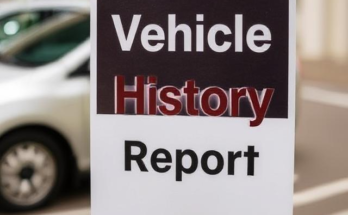Purchasing a used vehicle in the United States can be a financially savvy decision, offering significant savings compared to buying new. However, to ensure you’re making a wise investment, it’s crucial to delve into the vehicle’s past. Key aspects to scrutinize include the vehicle’s service history, recall records, and theft history. Understanding these elements can protect you from unforeseen expenses and safety hazards. Want to check all these details for free? click Free VIN Check.
The Importance of Vehicle Service History
A comprehensive service history provides a detailed account of all maintenance and repairs performed on a vehicle. This record is invaluable for several reasons:
-
Maintenance Consistency: Regular upkeep is essential for a vehicle’s longevity and performance. Service records reveal whether the previous owner adhered to recommended maintenance schedules, such as oil changes, brake inspections, and tire rotations. Neglect in these areas can lead to premature wear and costly repairs.
-
Predicting Future Expenses: By examining past maintenance, you can anticipate upcoming services or part replacements. For instance, if the timing belt was recently replaced, it’s one less expense to worry about in the near future.
-
Resale Value: A well-documented service history can enhance the vehicle’s resale value. Prospective buyers are more inclined to pay a premium for a car with a transparent maintenance record.
Understanding Vehicle Recalls
Vehicle recalls occur when a manufacturer identifies a defect that could affect safety or fails to meet federal safety standards. Addressing recalls is essential for the following reasons:
-
Safety Assurance: Recalls often pertain to critical components like airbags, brakes, or steering mechanisms. Ensuring that these issues have been rectified is vital for your safety and that of your passengers.
-
Legal Compliance: Driving a vehicle with unresolved recalls may violate safety regulations, potentially leading to legal complications.
-
Insurance Implications: Unresolved recalls can impact insurance coverage. In some cases, accidents resulting from known defects could lead to denied claims.
The Significance of Theft History Checks
Investigating a vehicle’s theft history is crucial to avoid potential legal and financial complications:
-
Avoiding Stolen Property: Purchasing a stolen vehicle can lead to legal issues, including the possibility of the car being repossessed without compensation.
-
Title Branding: Vehicles recovered after theft may have a branded title, indicating past theft or salvage status. This branding can affect the car’s value and insurability.
-
Assessing Damage from Theft: Stolen vehicles might have sustained damage during the theft or recovery process. Understanding this history helps in evaluating the car’s current condition.
How to Access These Details for Free
To make informed decisions when purchasing a used vehicle, it’s essential to access its service history, recall status, and theft history. One resource that offers comprehensive vehicle history reports is VinCheckUp. By entering the Vehicle Identification Number (VIN), you can obtain detailed information, including:
-
Accident History: Details of any reported accidents, including dates and severity.
-
Title Checks: Information on title brands such as salvage or flood damage.
-
Odometer Readings: Verification to detect potential odometer fraud.
-
Service Records: Insights into past maintenance and repairs.
-
Theft Records: Checks for active theft reports or theft recovery status.
Utilizing such tools empowers you with the knowledge needed to make a confident and informed purchase. Do free VIN check.
Additional Tips for Used Car Buyers
-
Conduct a Thorough Inspection: Beyond reviewing history reports, physically inspect the vehicle for signs of wear, damage, or poor repairs. Consider hiring a trusted mechanic for a pre-purchase inspection.
-
Verify Documentation: Ensure all vehicle documents, including the title and registration, are legitimate and match the seller’s information. Discrepancies can be a red flag for potential fraud.
-
Test Drive: Always take the car for a test drive to assess its performance, handling, and to detect any unusual noises or behaviors.
-
Research Market Value: Compare the vehicle’s asking price with similar models in the market to ensure you’re getting a fair deal.
-
Be Cautious with Private Sellers: While private sales can offer good deals, they often come with fewer protections than dealership purchases. Ensure you perform due diligence when dealing with private sellers.
By prioritizing the review of a vehicle’s service history, recall status, and theft history, you position yourself to make a purchase that is both safe and financially sound. Leveraging resources like Free Vin Check Up provides you with comprehensive insights, ensuring peace of mind as you navigate the used car market.
Want to check accident details, title and odometer verification for FREE, click here.




